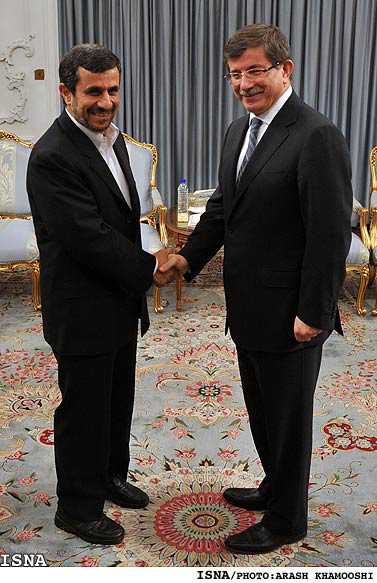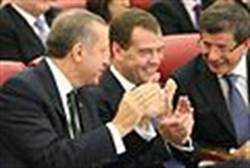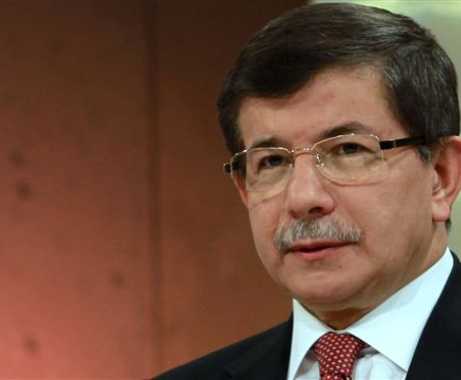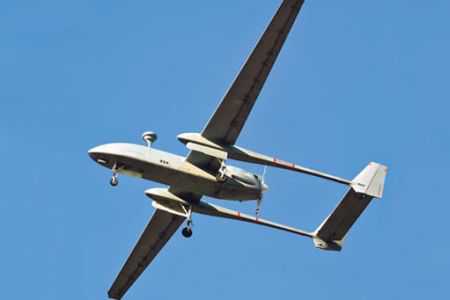Source: Mehr News Agency
Turkish Foreign Minister Ahmet Davutoglu has announced that Turkey will host new rounds of talks between Iran and the 5+1 group (the United States, Britain, France, Russia, China, and Germany) in the near future.

Ahmet Davutoglu (R) met Mahmoud Ahmadinejad in Tehran last week
Davutoglu made the remarks in a recent interview with the Japanese newspaper Nihon Keizai Shimbun.
Iranian and EU officials have agreed that talks be held in Turkey, Davutoglu stated, noting that the agreement was reached during the meetings he recently held with a number of Iranian officials and EU foreign policy chief Catherine Ashton, who represents the 5+1 group.
Commenting on the sanctions that the United States has imposed on the Islamic Republic and a number of European countries’ decision to impose sanctions on Iran, Davutoglu said that Ankara will not comply with such sanctions and sees no limitations hindering the expansion of ties with Tehran.
Davutoglu made an unannounced two-day visit to Tehran on January 4 and 5, in which he held talks with Iranian President Mahmoud Ahmadinejad, Foreign Minister Ali Akbar Salehi, and Secretary of Iran’s Supreme National Security Council Saeed Jalili.
At a joint news conference with Salehi on January 5, Davutoglu said that he carried a message from Ashton in regard to the resumption of talks.
“I gave Ashton’s message to Mr. Salehi, the Iranian foreign minister, (and) the Iranian foreign minister also expressed readiness (for dialogue),” he said at the time.
Iranian Foreign Ministry spokesperson Ramin Mehmanparast said on January 3 that Iran is waiting for the 5+1 to suggest a date and venue for a new round of talks.
“At present, we are waiting for Ms. Ashton to announce her suggested date and venue for the continuation of talks with Iran,” Mehmanparast stated.
He added, “After receiving the letter of Ms. Ashton, Mr. Jalili will announce his views,” and an agreement would be reached, Mehmanparast stated.
EU foreign policy spokesman Michael Mann said on December 31, 2010 that the EU is open to meaningful talks with Tehran, provided there are no preconditions on the Iranian side.
“We continue to pursue our twin-track approach and are open for meaningful discussions on confidence-building measures, without preconditions from the Iranian side,” Mann stated.
The Iranian ambassador to Germany said on the same day that the next round of talks will be held after Jalili sends a letter to Ashton.
In late January 2011, a new round of talks between Iran and the major powers was held in Istanbul but no date was set for the next round of negotiations.
After the end of the Geneva talks in early December 2010, Jalili announced that Iran and the 5+1 group had agreed that the next rounds of talks should focus on common ground for cooperation.
However, the 5+1 group reneged on the agreement, and after the end of the Geneva talks, Ashton read out a statement saying the nuclear issue would be the focus of the next round of talks, a move which drew strong criticism from Iranian officials.
The main bone of contention between Tehran and the West is Iran’s uranium enrichment program.
Iran says all its nuclear activities are totally peaceful, and, as an International Atomic Energy Agency member and a nuclear Non-Proliferation Treaty signatory, it has the legal right to produce nuclear fuel for its research reactors and nuclear power plants.
… Payvand News – 01/08/12 … —





